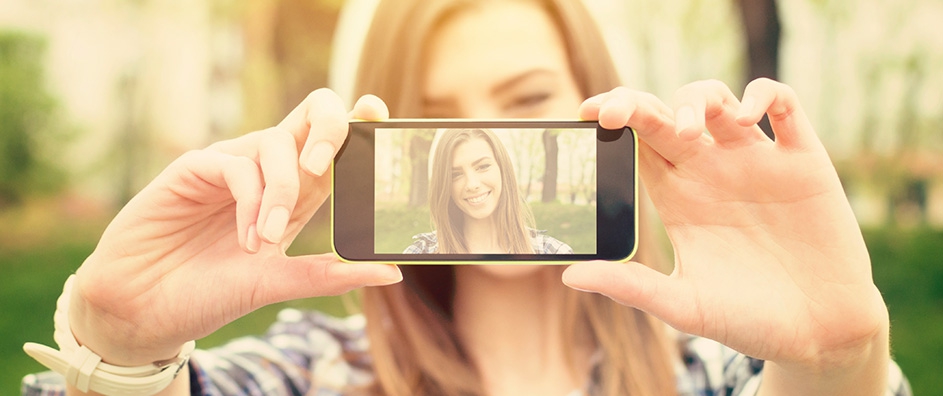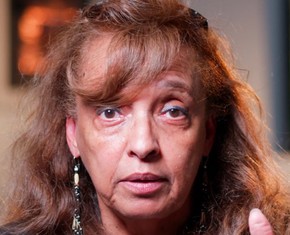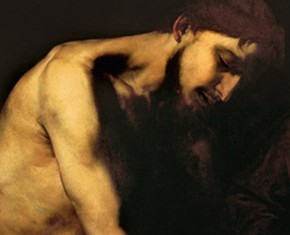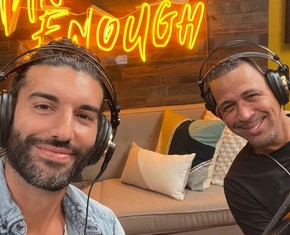The views expressed in our content reflect individual perspectives and do not represent the authoritative views of the Baha'i Faith.
Beauty is not in the face; beauty is a light in the heart. – Kahlil Gibran
The social media phenomenon of the selfie has inundated our world.
The Oxford online dictionary defines a selfie as a photograph one takes of oneself, typically one taken with a webcam or smartphone and uploaded to a social media website. The sentence example that Oxford provides offers a bit of humor: occasional selfies are acceptable, but posting a new picture of yourself everyday isn’t necessary.
Although I chuckled while reading the sentence example, I also felt saddened as I reflected on the selfie craze and society’s overemphasis on physical appearance. Why are we so fascinated by, and concerned with, how we look?
While writing this article, I typed ’soulfulness’ into my web browser, and guess what popped up, along with the definition? An advertisement featuring tips for a flatter stomach! I don’t know about you, but I don’t see the relationship between a trim tummy and soulfulness, which was defined as the expression of profound thoughts or feelings, or being full of spirit.
In my research, I found a few glimmers of hope in some examples of encouraging, positive messages that address these issues regarding the overemphasis of physical beauty. One example is singer-songwriter Colbie Caillat’s music video for her song “Try.” If you haven’t seen it yet, I suggest you check it out. In the video, she takes a stand against photoshopping, hair extensions, and makeup. She said she created the video in response to societal pressures around physical appearance and the insecurities she experienced because of it. Caillat’s message is reminiscent of the late Audrey Hepburn’s still-relevant statement, applicable to both men and women:
The beauty of a woman is not in a facial mole, but true beauty in a woman is reflected in her soul. It is the caring that she lovingly gives, the passion that she knows.
Another trending video, entitled “How 2,100 Selfies and One Brave Woman Inspired the Internet,” created by Rebecca Brown, brings awareness to mental health issues via time lapse images. The video, which has garnered more than five million views, has not only inspired, but also offered support and resources to sufferers of trichotillomania and dermotillomania (conditions that involve obsessively pulling hair and picking at skin, respectively). It’s a powerful video that includes atypical selfies designed to educate and support.
Although there are other examples that bring awareness to the overemphasis on outer beauty, I’ll provide you with just one more. In the article “My Body Image Epihany,” Berrak Sarikaya addresses her personal struggle regarding accepting her physical flaws. She eloquently describes her ’epiphany’ and subsequent shift in perspective:
My body is a canvas, and all the scars, imperfections, and wrinkles are just brushstrokes of a life full of beauty, laughter, struggles, pain, and survival.
After reading that insightful article and viewing those videos, I wondered: are we, as a global society, really concerned with how much weight someone has gained or lost, how youthful (or old) someone appears, how blemish-free someone’s complexion is, or the clothes someone wears? Could we shift our perspective, and focus more on our soulfulness by exhibiting virtues (such as kindliness and love) and good deeds? Consider this quote from Abdu’l-Baha:
Mortal charm shall fade away, roses shall give way to thorns, and beauty and youth shall live their day and be no more. But that which eternally endureth is the Beauty of the True One, for its splendor perisheth not and its glory lasteth forever; its charm is all-powerful and its attraction infinite.- Selections from the Writings of Abdu’l-Baha, p. 204.
In this quote, Abdu’l-Baha seems to tell us that the physicality of all living things fades and perishes, but what truly matters is the spirit–the part of ourselves that endures forever.
So we all age; we wrinkle and lose hair; we grow and shrink; we experience disease, accidents, and stressors. Our physical appearances, our hair, our weight and our age, our illnesses and struggles – these are all material, temporal, and superficial. Our flaws and difficulties are part of our ’canvas,’ and they don’t define who we are on the inside; they don’t define our spirit.
I encourage you to read Berrak Sarikaya’s article and watch Colbie Caillat’s and Rebecca Brown’s videos. Like me, perhaps you (or your loved ones) have struggled with insecurities over your weight, your looks, and your flaws.
Instead of focusing on those ultimately meaningless and fleeting physical attributes, let’s turn our attention away from superficiality and toward our spirituality. Rather than focusing on our external beauty, let’s focus instead on developing and appreciating the enduring, inner essence of ourselves – our souls.
















Comments
Sign in or create an account
Continue with Googleor